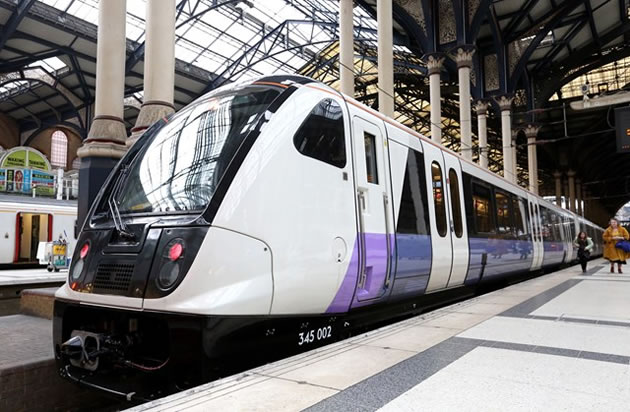Crossrail Delays Could Cost TfL £750 Million in Ticket Sales
Second half of 2021 latest estimate of commencement of services

Elizabeth line train. Picture: TfL
Delays to Crossrail could cost Transport for London (TfL) as much as £750 million in lost ticket sales, rail bosses admitted this Wednesday (20 November).
This is on top of growing construction costs, which could see the project go up to £650 million over budget. The new rail line will link Reading, Slough and Heathrow in the west, and Woolwich and Shenfield in the east with central London.
It was originally set to open in December last year, at a cost £14.8 billion. But costs have since spiralled to more than £17.8 billion, and bosses admitted earlier this month that the central part of the line would not open in 2020, as previously hoped.
Simon Kilonback, chief finance officer for TfL, today admitted this delay would have a “material impact” on the transport network’s finances.
Speaking at a TfL board meeting, he said: “We will be building scenarios into our business plan that cope with a range of options which could account for as much as £500 to £750 million in revenue impact spread over four years.”
He added: “We will obviously work with our teams to ensure we prioritise getting this railway into revenue service as soon as we possibly can, given the magnitude of that impact on TfL’s finances.”
Crossrail bosses would not provide a revised opening date today, but hinted that they could miss their existing target. Project chiefs previously gave an opening window of October 2020 until March 2021 for the central section of the line.
Earlier this month, they admitted the line would not open next year – but there are still hopes that it will be running in the first quarter of 2021.
However, Crossrail chairman Tony Meggs said today that was now less likely.
He said: “We still have the possibility of being within the window that we created but that possibility has reduced from where it was.”
He added: “There will never be certainty with a project of this scale and complexity but we want to be as confident as we can when we issue a revised forecast that it will be the last time we do that.”
Mr Meggs said trial running of trains on the line – designed to identify any safety problems – should begin in May or June next year.
He said this testing would take nine to 12 months – meaning the line could open to the public as late as the second half of 2021.
But Mark Wild, chief executive on the project, said safety testing must be thorough, despite the possible delays.
He said: “You should be reassured that not one corner will be cut on safety and reliability here. As uncomfortable as it is, it will be worth it in the long run.”
And Mr Meggs, who has led the project since January this year, said it was now “in a far better place”.
He said: “A year ago the Crossrail project was in severe disarray. There was no viable plan for completing the work and bringing the railway into operation.
“Certain stations were far behind the rest, threatening severe delays to the overall programme.”
He added: “This is a completely different company to that which we inherited at the end of last year.”
Jessie Matthewson - Local Democracy Reporter
November 20, 2019